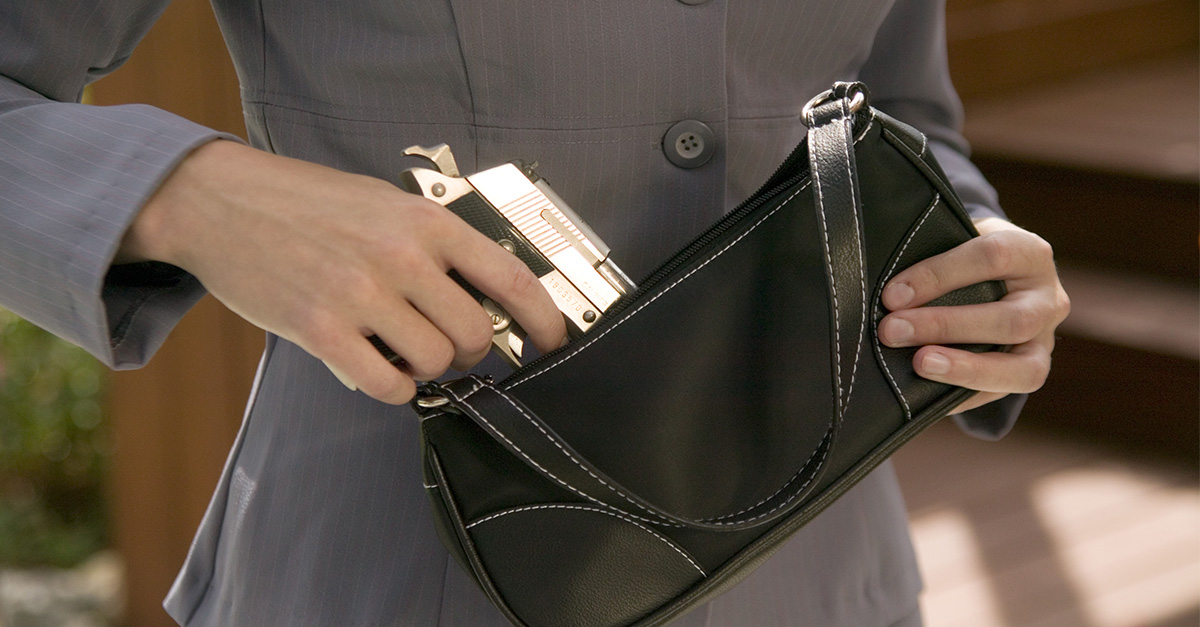


Get a free copy of Parental Rights & Education when you subscribe to our newsletter!

“As the world turns, it makes no sense for contemporary society to pledge allegiance to the founding era’s culture, realities, laws, and understanding of the Constitution. ‘The thing about the old days, they the old days.’”
–Justice Todd Eddins
Justices with the Hawaii Supreme Court argue that Hawaii must follow the “spirit of Aloha,” not the rulings of the U.S. Supreme Court, when it comes to the Second Amendment rights of individuals.
The Supreme Court of Hawaii has handed down a decision that claims there is no right to carry a firearm for self-defense in the state, while also chastising the U.S. Supreme Court and making the assertion that Hawaii is not required to follow its rulings on the Second Amendment.
The judges made the 5-0 ruling last week in a case involving Christopher Wilson, a man who was arrested in 2017 for carrying a firearm in violation of Section 134-25, a state law that doesn’t allow people to carry a firearm outside the home.
Wilson filed suit to have the charges dismissed, claiming the law violates his Second Amendment right to carry a firearm for self-defense.
A district court initially upheld the charge. However, following the U.S. Supreme Court’s decision in New York State Pistol & Rifle Association v. Bruen that found that there is a Second Amendment right to carry a firearm outside the home for self-defense, a circuit court judge reversed the decision and dismissed the charges against Wilson.
The state appealed to the Supreme Court of Hawaii, which this past week dismissed Wilson’s suit, a decision that will now require him to stand trial.
The decision by the Supreme Court of Hawaii has garnered national attention for its brazen refusal to follow the Supreme Court’s ruling, as well as its unique reasoning.
While Article 1, Section 17 of the Hawaiian Constitution is nearly identical to the words of the Second Amendment, the state supreme court found that there is actually no right to carry a firearm in the Hawaiian Constitution and argued that the U.S.’s highest court also got it wrong when reviewing the U.S. Constitution.
“We read those words differently than the current United States Supreme Court,” read the unanimous ruling, which was written by Justice Todd Eddins.
The opinion claimed that when the state’s supreme court sees things differently than the Supreme Court, “this court frequently walks another way. Long ago, the Hawaiʻi Supreme Court announced that an ‘opinion of the United States Supreme Court . . . is merely another source of authority, admittedly to be afforded respectful consideration, but which we are free to accept or reject in establishing the outer limits of protection afforded by . . . the Hawaiʻi Constitution.’”
The judges stated that, until the last few decades, there was no understanding that the Second Amendment provided individuals the right to bear arms. They also argued that justices had cherrypicked laws and historical tradition, while ignoring anything that would debunk their reasonings in order to come to its 2022 decision in Bruen, its 2008 decision in District of Columbia v. Heller, and its 2010 decision in McDonald v. City of Chicago, all of which affirm the individual’s right to self-defense under the Constitution.
The Hawaiian Supreme Court also took issue with the test established by the U.S. Supreme Court in Bruen, which requires judges to look to the historical tradition of firearms restrictions when deciding Second Amendment cases.
“Time-traveling to 1791 or 1868 to collar how a state regulates lethal weapons — per the Constitution’s democratic design — is a dangerous way to look at the federal constitution. The Constitution is not a ‘suicide pact,’” the judges wrote. “We believe it is a misplaced view to think that today’s public safety laws must look like laws passed long ago. Smoothbore, muzzle-loaded, and powder-and-ramrod muskets were not exactly useful to colonial era mass murderers.”
The court even attacked the concept of history itself, citing Melissa Murray’s, Children of Men: The Roberts Court’s Jurisprudence of Masculinity to argue that “the current Court ‘frequently relies [on] moments in which women and people of color were expressly excluded from political participation and deliberation.’”
“History is messy. It’s not straightforward or fair. It’s not made by most,” they wrote.
The court reasoned, “As the world turns, it makes no sense for contemporary society to pledge allegiance to the founding era’s culture, realities, laws, and understanding of the Constitution. ‘The thing about the old days, they the old days.’”
The last line quoted in the ruling was by a fictional drug dealer in the gritty HBO crime series “The Wire.”
Oddly enough, the court then spent several pages arguing that restriction of firearms was consistent with the history of the Kingdom of Hawaii before it was part of the U.S., most notably the edicts and laws of King Kamehameha I and Queen Liliʻuokalani.
Then its argument took an even more interesting turn.
“In Hawaiʻi, the Aloha Spirit inspires constitutional interpretation,” Justice Eddins argued, explaining,
“When this court exercises ‘power on behalf of the people and in fulfillment of [our] responsibilities, obligations, and service to the people’ we ‘may contemplate and reside with the life force and give consideration to the “Aloha Spirit.”’ The spirit of Aloha clashes with a federally-mandated lifestyle that lets citizens walk around with deadly weapons during day-to-day activities.”
Anne Lopez, Hawaii’s Attorney General, praised the decision, stating,
“This is a landmark decision that affirms the constitutionality of crucial gun-safety legislation. Gun violence is a serious problem, and commonsense tools like licensing and registration have an important role to play in addressing that problem. More broadly, Justice Eddins’ thoughtful and scholarly opinion for the court provides an important reminder about the crucial role that state courts play in our federal system.”
While Lopez supported the decision, others found the ruling hard to believe.
Jonathan Turley, a professor of constitutional law at George Washington University, addressed the court ruling in his blog recently, writing,
“It has been 65 years since Hawaii became a state, but the Hawaiian Supreme Court appears to be having second thoughts. In an extraordinary ruling, the unanimous Supreme Court rejected the holdings of the United States Supreme Court on the Second Amendment as inapplicable to the 50th state. Hawaii apparently is controlled not by the precedent of the Supreme Court but the ‘spirit of Aloha.’ While Queen Liliʻuokalani would be pleased, the justices on that ‘other’ Supreme Court may view such claims as more secessional than spiritual.”

The Hawaiian Supreme Court’s opinion is all over the map. On the one hand, the justices tried to bolster dismissal of the Bruen test by dismissing the wisdom of the Founders and colonial firearm traditions. But then on the other, it relies on Hawaii’s own historical tradition, beginning with its history as a kingdom, of excluding an individual right to carry a firearm as their reasoning for denying the plaintiff his Second Amendment rights.
Unique in this decision are the Hawaiian justices’ attitude toward the U.S. Supreme Court. Similar to members of today’s mainstream media, they appear to believe that the decisions of America’s ultimate judicial authority hold no legitimacy when they go against their own worldview. The Hawaiian court’s decision is full of condescension, accusations, and falsehoods directed at the High Court that reads more like that of an angry college freshman churning out the first draft of a political science essay than judges who respect the Constitution and the concept of federalism.
This can be seen most clearly when the judges move away from the issue of the Second Amendment and try to relitigate the Dobbs case, which overturned Roe v. Wade. Here, they truly let their inner activist shine.
The Supreme Court of Hawaii argues,
“Bruen, McDonald, Heller, and other cases show how the Court handpicks history to make its own rules. (At the same time that it purported to anchor its holding in American common law, the Dobbs majority engaged in historical fiction, disregarding evidence that undermined its view and ignoring the reproductive autonomy that American women originally exercised — autonomy that included matters of pregnancy, childbirth, and abortion.)”
The Hawaiian Supreme Court was very insistent that words have meaning and that the exact wording of an amendment matters. That was the main crux of their argument in this case: The Second Amendment doesn’t grant a right to everyday citizens because it doesn’t use the words “individual” or “self-defense.”
However, the 14th Amendment, which was used to insist on the constitutionality of Roe v. Wade, doesn’t use the words “abortion” or “privacy” nor does it state anything about the “right” to either. It actually says that no state shall deprive any person of the right to life, something an abortion clearly does by killing a child.
The Supreme Court overturned Roe v. Wade in the Dobbs case because it determined that the case was wrongly decided — that there is, in fact, no right to an abortion in the U.S. Constitution — not because they were imposing their views on women. Abortion had nothing to do with the case the Hawaiian Supreme Court was deciding, but they used it to bolster their own views, effectively stating that the Dobbs decision, and any others that it doesn’t favor, including Bruen, Heller, and McDonald, delegitimize the Supreme Court’s authority.
This is a very dangerous proposition whereby political judges have decided they can follow those U.S. Supreme Court decisions they like but defy those with which they disagree.
Hawaii may have been the 50th and final state admitted to the Union, but that does not mean its residents have fewer rights than those who live in other states. The right to own a firearm for self-defense is an inalienable right, safeguarded by the Constitution of the United States, just like all other rights.
If Hawaii wants to secede and becomes its own kingdom, it can once again rule according to the “spirit of Aloha,” but until then, it, like all other states, must submit to the U.S. Constitution as written by the Founding Fathers and interpreted by the U.S. Supreme Court — not the Hawaiian Supreme Court.
If you like this article and other content that helps you apply a biblical worldview to today’s politics and culture, consider making a small donation here.
Christian conservative news and issues that matter. Curated just for you!
